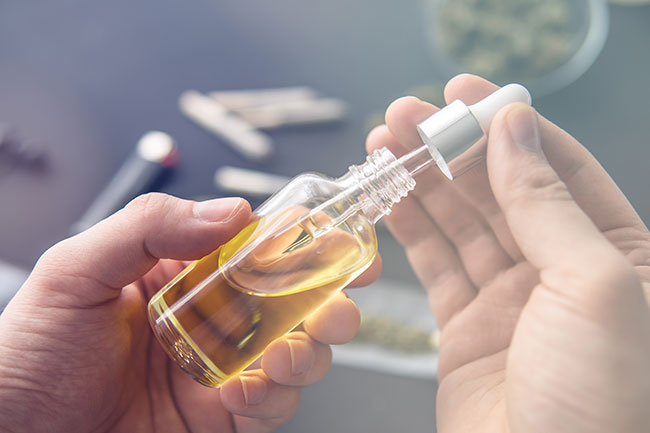
Features
Legal Matters: Market prospects for 2020
January 21, 2020 By Matt Maurer
 Deloitte estimates the Canadian market for edibles, and extracts to be worth $2.7 billion annually. (Photo: AdobeStock)
Deloitte estimates the Canadian market for edibles, and extracts to be worth $2.7 billion annually. (Photo: AdobeStock) 2019 saw Canada mark its first anniversary of legalizing recreational use of cannabis. It also saw a lot of other highs and lows along the way. As we turn into the last quarter of 2019, I thought it might be time to look ahead and see what might be in store for the Canadian cannabis industry in 2020.
Hard times for cultivators
In the lead-up to legalization, we saw existing licensees race to expand and increase capacity and the federal government ramping efforts to license new companies. This was all to ensure that Canadians would have a sufficient amount of supply once the clock struck 12 on the first day of legalization on Oct. 17, 2018.
This year, we saw the tide begin to turn.
Some producers, presumably feeling the pressure to perform, cut corners and saw their licences suspended. Others got beat up by under-performing on their anticipated metrics and had to slash their workforce by significant amounts.
If the second half of 2019 saw a small river of problems for cultivators, 2020 could potentially usher in a tsunami. There are currently more than 250 federally licensed producers in this country and the number continues to grow.
With prices of dried flower beginning to soften, competition is heating up and not everyone is going to make it out of the year unscathed. Hexo and CannTrust have demonstrated that no one is immune from significant potential problems. 2020 will be the time for cultivators to deliver – failure to do so may result in them not making it to 2021.
Supply and demand
At the end of 2018, I predicted that supply would catch up with demand in 2019. Although there are still a few months left to go before the calendar flips over, it is only just now that we are starting to see supply catch up with demand.
The price of dried flower is finally starting to fall and moratoriums on provincial retail licensing systems are being lifted, as are caps placed on various product SKUs by provincial wholesalers. As we hit the end of 2019, we should really start to see supply catch up with market demand, and this shift should continue to push right into 2020.
Retail ramps up
Speaking of retail, the sales figures reported in 2019 simply were not at the levels that many anticipated. This is not terribly surprising when you consider that three of the four most populous provinces, which collectively represent nearly 65 per cent of the country’s population, had significant issues with their retail rollout.
Ontario started the year by announcing that just 25 licences would be handed out across the province due to supply shortages. While this number alone is woefully insufficient to service a population that is in excess of 13 million, the majority of the 25 stores were not even able to open until the middle of the spring due to delays in the licensing process.
British Columbia got off to a very lumbering and slow start which did little to help displace what is arguably the largest and most entrenched legacy market in the entire country.
Lastly Alberta, which now boasts more than 250 retail locations, put itself under a lengthy licensing pause due to concerns over the availability of product for retailers.
However, the gloves are now off, and each of these provinces are steadily adding new stores by the week. We have already seen that an increase in storefront locations correlates to an increase in sales volumes, so expect numbers to grow exponentially in 2020.
Cannabis 2.0 ushers in new wave of consumers
Edibles, topicals and concentrates should also serve to help drive up revenue when these products begin hitting store shelves just before Christmas. Non-combustible products, coupled with a continuing decrease in cannabis stigma will lead non-consumers into the marketplace in 2020.
These consumers won’t all just be looking for a good time either. Cannabis health and wellness products will be sought after and will also contribute to rising sales figures, especially if the federal government allows CBD products to be sold outside of cannabis retail locations as it is currently contemplating.
Strong year for non-cultivators
While many cultivators will (in my opinion) have a rough go in 2020, there are many companies who will thrive. Well-run companies focused on extraction or anywhere along the Cannabis 2.0 supply chain ought to be in for a good year.
Additionally, companies that do not touch the plant continue to bring forth valuable new technology and products into this nascent industry. Companies that can fill a need, especially a need that no one knew previously existed, will be in for a strong year.
Matt Maurer is the vice-chair of the Cannabis Law Group at Torkin Manes LLP in Toronto.
Print this page